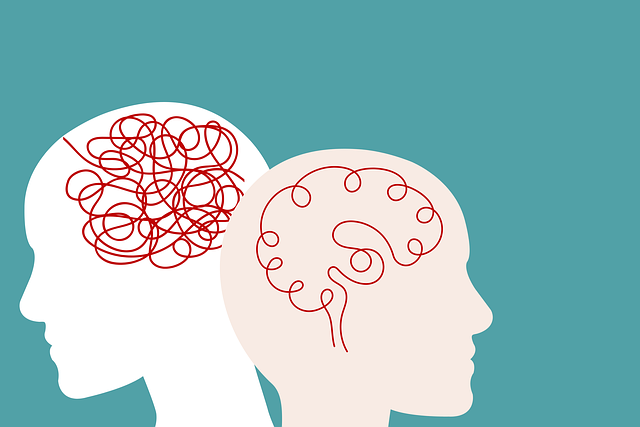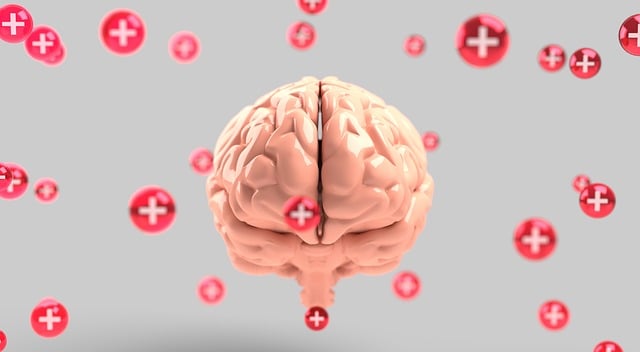Mental wellness is crucial for children aged 3-12, especially in Germany where they may face anxiety or trauma. Accessing tailored therapy, including journaling, is vital. This practice helps children manage emotions, develop coping skills, and foster self-awareness through self-expression. Cultural sensitivity is key when providing resources in German-speaking communities, as language barriers exist. Journaling routines, with simple prompts, support mental wellness coaching for young German speakers, strengthening family bonds and promoting healthy emotional development.
“Unleash the transformative power of mental wellness journaling for young children! This comprehensive guide explores the intricate link between mental health and childhood development, focusing on the unique needs of German-speaking kids. Delve into the therapeutic benefits of journaling, discover tailored strategies for parents, and unlock creative prompts to engage young minds. From fostering emotional expression to enhancing cultural identity, this resource offers a nurturing approach to support the mental wellness journey of German-speaking children.”
- Understanding Mental Wellness for Young Children
- The Power of Journaling as a Therapy Tool
- German-Speaking Children: Unique Challenges and Benefits
- Setting Up a Journaling Routine: Tips for Parents
- Creative Journaling Prompts for Engaging Young Minds
Understanding Mental Wellness for Young Children

Mental wellness is a vital aspect of a child’s overall development, especially for young children aged 3 to 12 years old. This period is crucial for laying the foundation of emotional resilience and healthy coping mechanisms. Understanding mental wellness involves recognizing that young children experience a range of emotions, just like adults, and they need guidance to navigate these feelings effectively. Many children may struggle with anxiety, stress, or even trauma, which can impact their daily functioning and social interactions.
For German-speaking families, accessing therapy for young children is an essential step towards fostering mental wellness. Therapists specializing in child psychology offer various evidence-based approaches tailored to the unique needs of each child. Social skills training, self-esteem improvement, and coping skills development are some of the key areas addressed through these therapies. These interventions not only help children manage their emotions but also teach them valuable life skills that will serve them well into adulthood.
The Power of Journaling as a Therapy Tool

Journaling has emerged as a powerful therapy tool, offering immense benefits for mental wellness, especially among young children. In the context of German-speaking communities, this practice can provide a safe and effective outlet for expression and healing. Through putting pen to paper, children are equipped with essential coping skills that foster emotional resilience. By documenting their thoughts and feelings, they learn to recognize and manage their moods, a valuable asset in navigating life’s challenges.
This therapeutic exercise encourages self-reflection, allowing young minds to explore and process complex emotions. It can serve as a proactive approach to prevent issues like depression, enabling children to develop healthy coping mechanisms early on. The act of journaling is a private, intimate process that promotes a sense of control and empowers individuals to take an active role in their mental health journey.
German-Speaking Children: Unique Challenges and Benefits

German-speaking children face unique challenges when it comes to mental wellness and therapy due to cultural and linguistic differences. Accessing appropriate mental wellness resources for young children in this demographic can be a complex issue, especially in regions where services are not readily available in their native language. However, these barriers also present an opportunity to develop culturally sensitive and tailored interventions that cater specifically to German-speaking children’s needs.
Many traditional therapy approaches may not fully resonate with the cultural context of these children, potentially impacting their effectiveness. Therefore, adapting therapeutic practices to incorporate elements of their heritage can foster a stronger connection and encourage open communication. This personalized approach can enhance inner strength development and provide much-needed trauma support services, ensuring that German-speaking children receive culturally competent care that respects their unique background.
Setting Up a Journaling Routine: Tips for Parents

Starting a journaling routine can be a powerful tool for parents to support their child’s mental wellness, especially when considering therapy for young children speaking German. Consistency is key; dedicate a specific time each day for journaling, making it a familiar and inviting practice. Encourage your child to choose a format that suits them—it could be illustrations, words, or even both combined.
Provide prompts or topics as guidance, focusing on emotions, experiences, and aspirations. Simple questions like “What made you happy today?” or “How do you feel about [a recent event]?” can initiate meaningful conversations and reflections. This exercise not only fosters self-awareness but also strengthens the bond between parent and child. Remember, integrating journaling into daily life is an act of self-care for parents too, preventing burnout and promoting a healthier family dynamic.
Creative Journaling Prompts for Engaging Young Minds

Journaling is a powerful tool to encourage self-expression and emotional awareness, especially for young minds. When combined with creative prompts, it becomes an engaging therapy for children, even those who speak German. These prompts can unlock their imagination and help them explore their thoughts and feelings in a fun way. For instance, encouraging them to draw their day or create a story around a random object can stimulate creativity while promoting mental wellness coaching programs development.
By incorporating self-care practices into journaling routines, young individuals can learn to nurture their inner strength. Simple prompts like “Write about something that makes you happy” or “Draw your ideal calm day” can initiate conversations about the importance of emotional well-being and inspire them to develop healthy coping mechanisms. Such exercises are beneficial not only for mental wellness coaching but also for fostering a positive relationship with oneself, which is crucial for their overall development.
Mental wellness journaling can be a powerful therapy tool for young children, offering a creative outlet for expression and self-discovery. By incorporating this practice, parents can support their children’s emotional well-being, especially those identifying as German-speaking, who may face unique challenges in navigating mental health discussions. With the right prompts and established routines, journaling becomes an engaging activity that fosters resilience and provides valuable insights into a child’s mind. This approach not only benefits individual children but also has the potential to revolutionize therapy for young individuals within the German-speaking community.













